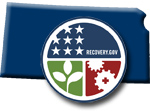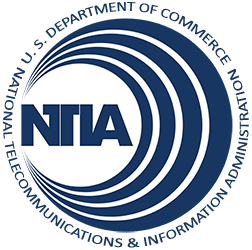Broadband’s ability to expand educational and employment opportunities is especially meaningful for Americans who are deaf or hard of hearing, a community that faces unique challenges in education and that suffers from a rate of unemployment much higher than the national average. Communication Service for the Deaf, Inc. (CSD) intends to expand broadband adoption among people who are deaf and hard of hearing and provide them with online tools to more fully participate in the digital economy. The project proposes to employ a combination of discounted broadband service and specialized computers, technology training from an online state-of-the art support center customized to the community’s needs, public access to videophones at anchor institutions from coast to coast, and a nationwide outreach initiative. Thousands will gain online access to all the Internet has to offer, including sign language interpreters, captioned video services, and other content and functionalities designed especially to advance their educational, employment, and healthcare interests.
Kansas

| Grantee | Total Award | Type |
|---|---|---|
| Communication Service for the Deaf, Inc. | $14,988,657 | Sustainable Adoption |
| Department of Commerce, State of Kansas (transferred from Connected Nation) | $6,371,514 | Broadband Data & Development |
| Level 3 EON, LLC | $998,419 | Infrastructure |
| University Corporation for Advanced Internet Development | $62,540,162 | Infrastructure |
Project Components
State Broadband Capacity Building:
This project will enhance the existing broadband state program office by continuing support for the state program director position, which serves as an employee of the Kansas Department of Commerce (DOC) and creating a program coordinator position, which will be an employee of Connected Nation whose activities will be directed by DOC. Funding will also support the needs of the new Kansas Broadband Task Force.
Technical Assistance:
This technical assistance project will support the capacity building and local regional technology planning team activities by engaging local and state-level surveys of broadband adoption and barriers to adoption. This will enable both the state and local teams to develop realistic goals and actionable strategies for broadband deployment and adoption. Through this project, the State of Kansas will also develop an Enterprise Architecture to drive performance improvements in areas such as business processes (Right-of-Way, permitting), the use of state assets to drive infrastructure deployment, and cross-collaboration among state agencies.
Local Regional Technology Planning Teams:
This project will support the formation of seven regional technology planning teams that will develop localized broadband plans to facilitate broadband deployment and adoption, under the direction of DOC. Connected Nation will fund positions within existing planning organizations in each of these regions to support the work of the teams. This project structure will improve the likelihood of project sustainability after the award period ends.
Data Collection, Integration, and Validation:
This project was originally funded for broadband planning activities and two years of data collection. In September of 2010, this project was amended to extend data collection activities for an additional three years and to identify and implement best practices.
The Expanding Broadband Access Across Kansas project proposes to build four new access points on Level 3’s existing broadband network to enable last mile providers to offer affordable high-speed services to underserved areas. The additional points of interconnection will offer broadband speeds between 50 Mbps and 10 Gbps on an open and nondiscriminatory basis to last mile Internet service providers. Similar to on-ramps to the interstate highway system, these points of interconnection will enable last mile providers to transport data to the Internet backbone and provide affordable service to anchor institutions, homes, and businesses. The project could enhance broadband capabilities for as many as 50,000 households, 3,600 businesses, and 150 community anchor institutions, including schools, government agencies, and healthcare providers.
As part of a longstanding project to connect essential community anchor institutions across the country, and facilitate closer collaboration and long-term benefits for education, research, healthcare, public safety, and government services, the University Corporation for Advanced Internet Development (UCAID) proposes a comprehensive 50-state network benefitting approximately 121,000 community anchors. The project proposes a large-scale, public-private partnership to interconnect more than 30 existing research and education networks, creating a dedicated 100-200 Gbps nationwide fiber backbone with 3.2 terabits per second (TBps) total capacity that would enable advanced networking features such as IPv6 and video multicasting. The project plans to connect community anchors across all disciplines into virtual communities with shared goals and objectives, including colleges, universities, libraries, major veterans and other health care facilities, and public safety entities, with additional benefits to tribes, vulnerable populations, and government entities.
